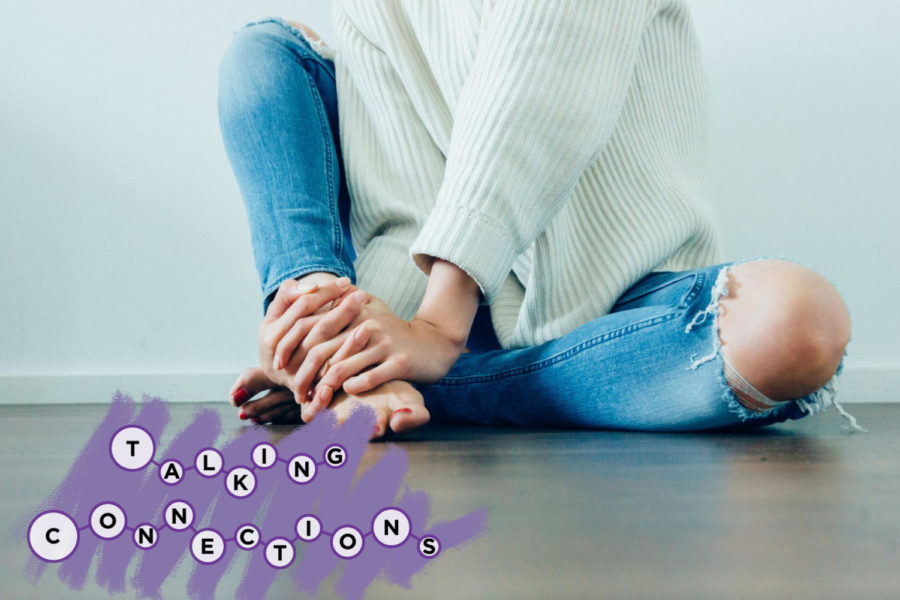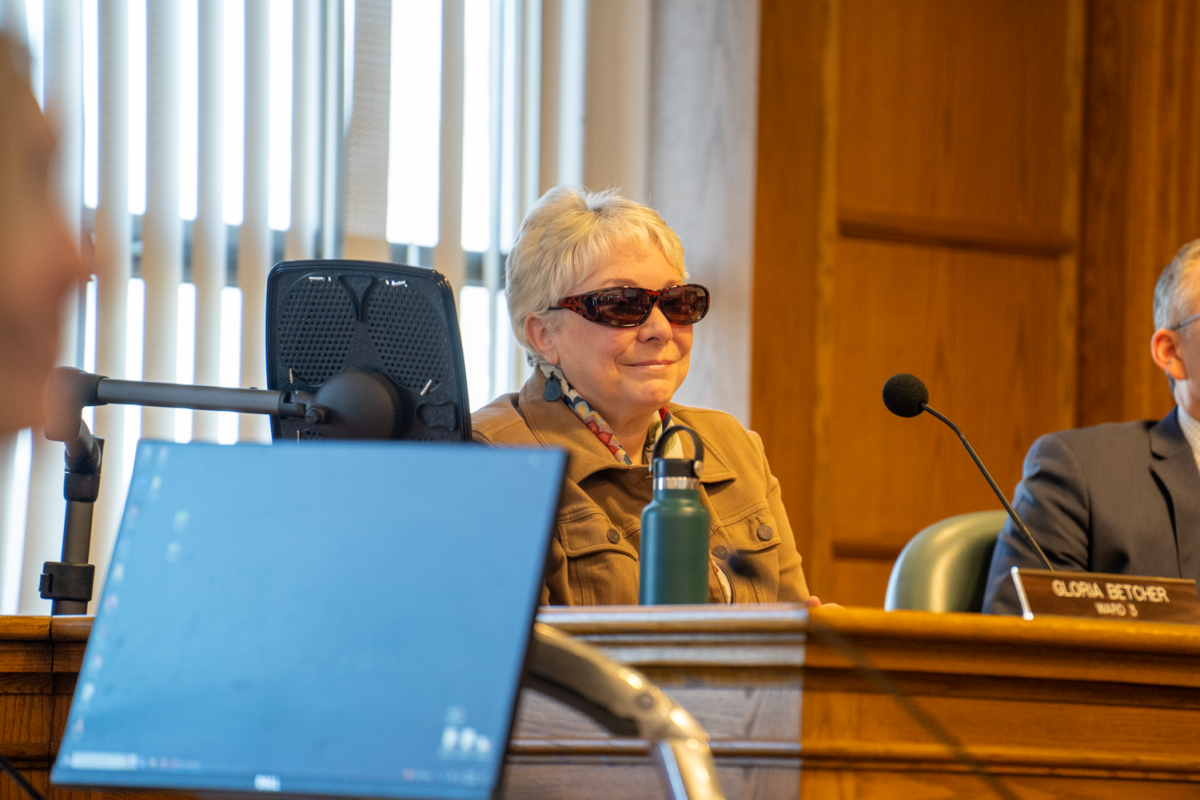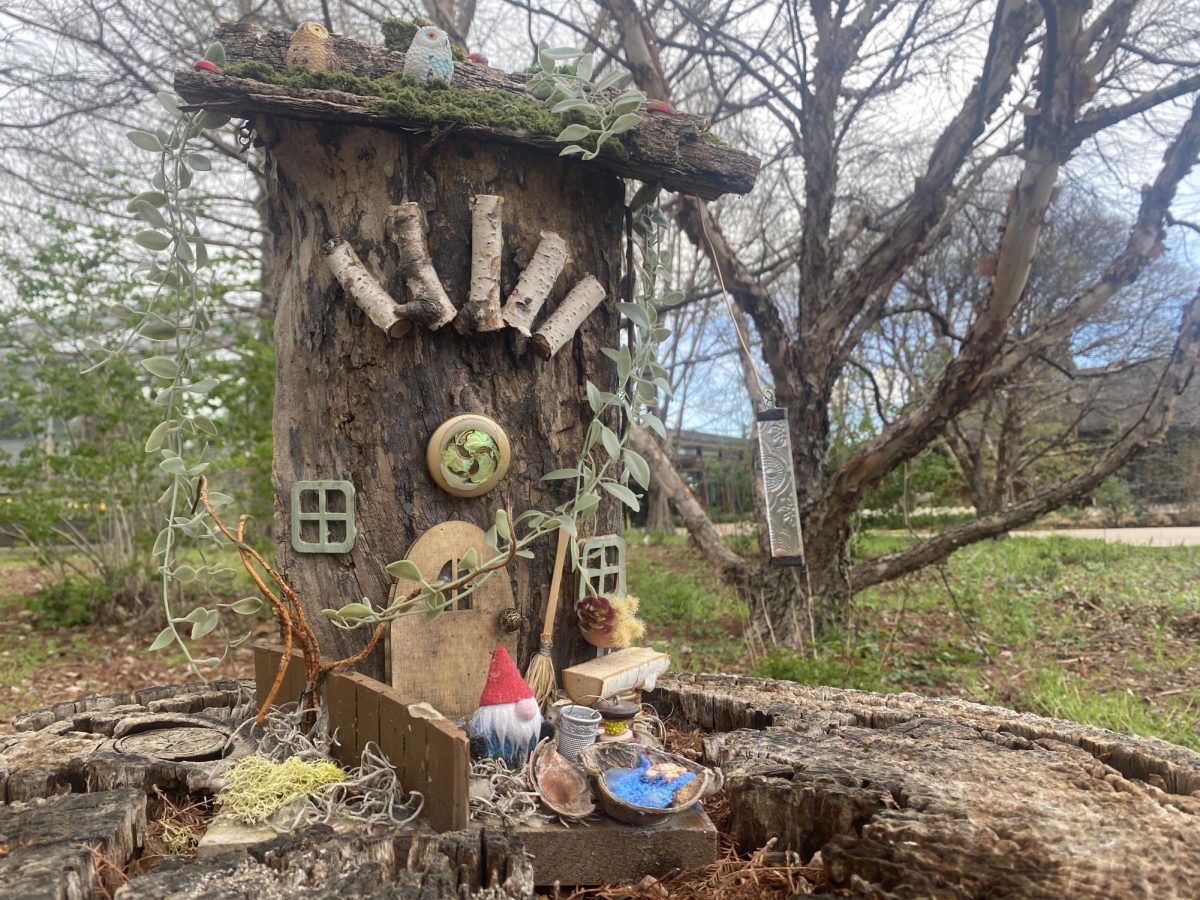Talking Connections: Creating a healthy relationship with yourself
One of the many relationships people will run into throughout their lives is the relationship they have with themselves.
May 7, 2020
Editor’s note: This is part 10 in our weekly relationship series “Talking Connections.” Sensitive content may follow.
One of the many relationships people will run into throughout their lives is the relationship they have with themselves.
“Your relationship with yourself is arguably the most important relationship in life,” said Grant Brenner, a psychiatrist, in a post on the Psychology Today website. “Self-relationship is the foundation of everything else.”
David Wahl, research associate for Iowa State, said this type of relationship between an individual and their self comes down to cultivating awareness. He said when someone cultivates awareness of their self they are able to motivate themselves toward goals that are meaningful to the individual and that awareness also aids in healthier and more beneficial decisions and behaviors for the individual.
“Unless the person works at understanding themselves or choose to ignore aspects of the self out of discomfort or fear, mistakes are made, decisions are based on confusion and there can be general disorder in one’s life,” Wahl said. “To have a relationship with one’s self means to be aware and accepting of who you are.”
Wahl said the relationship people have with their self is continually developing. He said throughout a person’s life they must recognize the changes and respond to them. Some of these changes occur internally, while other changes are imposed by a person’s social environment. Wahl said the individual must maintain awareness of the ongoing changes and acknowledge and respond accordingly.
“You most likely are not the same person at 40 years of age that you were at 18,” Wahl said. “Even if you could maintain internal consistency, influences of the external environment work to force difference and change. But the very process of selfhood is dependent upon social interaction where others are instrumental in defining the self through a process of negotiating and renegotiating shared meanings. As these meanings are negotiated, the relationship one has with their self continues to develop — if one is aware.”
In Brenner’s article on the Psychology Today website he said people learn from key figures — parents, siblings, family, peers and other adults — about how to relate with oneself.
“Early in development, relationships with others shape the relationship with oneself,” Brenner said. “There are intrinsic tendencies about the relationship with oneself as well. As we grow up, the way we are treated by others, and the way those others deal with themselves, serve as important factors influencing how we address ourselves as adults.”
Creating a healthy relationship with oneself
“To remain ignorant of one’s self can result in general disorder — bad decisions, unhealthy behaviors, misguided goals, etc,” Wahl said. “A healthy relationship with one’s self begins with the understanding of one’s self.”
Though there can be bad side effects when someone does not take care of themselves, there are steps people can take to improve their relationship with themself.
Setting the goal
Anytime a person starts a project, it is important to have a goal in mind. Creating a healthy relationship with yourself is not a small project and may take years, according to Brenner. Set the overarching goal, over a span of years, to keep moving toward a good relationship with yourself, with the understanding that what this entails will change over the years, Brenner said in his article on the Psychology Today website.
Prioritize basic self-care
Before really diving into creating a healthy relationship with oneself, you must first be healthy yourself.
“Sleep, nutrition, activity, rest, recreation and mental habits are the foundations of sustainable self-care,” Brenner said. “These are the very basic behavioral building blocks, which constitute having a good relationship with oneself.”
He said the proper care of one’s physical needs makes everything else work better and shows yourself that on an ongoing basis you actually care about yourself.
“This builds trust in oneself over time, rather than feelings of betrayal,” Brenner said. “Mental habits are a kind of behavior, and can take a while to shift, but are equally important and easy to overlook — and harder to maintain when hungry, poorly fit, sleep-deprived or not experiencing enough play, affection or rest in one’s life when by oneself or with others.”
Be kind to yourself
Starting and continuing any relationship begins with kindness and the relationship someone has with oneself is no different.
“This doesn’t mean ‘letting yourself off the hook’ or shirking responsibility, but it does mean working toward appraising yourself without destructively aggressive criticism or blame,” Brenner said. “People are often blame-dependent regarding self-appraisal and self-correction, and more often than not, excessive blaming leads to less effective change.”
Brenner said because it is unavoidable, accept blaming but work toward being kind and gentle, while also being candid and taking responsibility.
“It’s crucial to have a great relationship with ourselves because it’s the only relationship that you are guaranteed to have every day of your life,” said Julie Hanks, a therapist and blogger at Psych Central.
Establish good habits
Another good thing to start that will help with maintaining a healthy relationship with oneself is getting into good habits.
“Start your day in such a way that you increase the likelihood of having a day that supports your self-relationship goals,” Brenner said. “Some people find it useful to write down daily goals the night before and review them first thing in the morning. Others hold these ideas in mind and can review them mentally.”
Brenner said it is important to remind yourself of your long-term intentions and goals, review key practices you want for that specific day and rehearse how you want to address problematic activities in your day shortly after waking up.
Other good habits could be to regularly make time for yourself. Sit quietly for 10 minutes in the morning with your first cup of coffee or find books that speak to you and steal moments to dig into them every day.
















